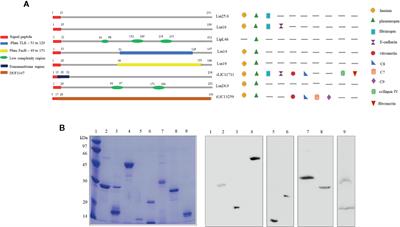ORIGINAL RESEARCH
Published on 15 Jan 2021
Role of TLR4 in Persistent Leptospira interrogans Infection: A Comparative In Vivo Study in Mice

doi 10.3389/fimmu.2020.572999
- 2,655 views
- 8 citations
7,758
Total downloads
30k
Total views and downloads
You will be redirected to our submission process.
ORIGINAL RESEARCH
Published on 15 Jan 2021

REVIEW
Published on 08 Jan 2021

ORIGINAL RESEARCH
Published on 30 Oct 2020

REVIEW
Published on 06 Oct 2020

REVIEW
Published on 14 Aug 2020

ORIGINAL RESEARCH
Published on 11 Aug 2020


Frontiers in Microbiology
Microbial ImmunologyOffline